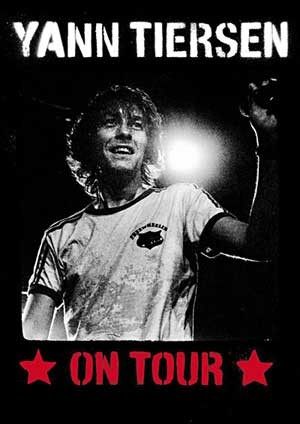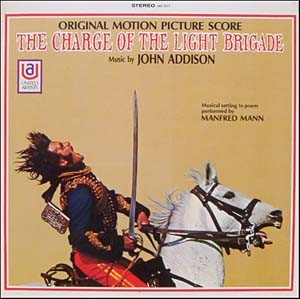30/11/2006
La rade
03:45 Publié dans Morceaux en forme de poire | Lien permanent | Commentaires (0) | Tags : musique, Yann Tiersen |  |
|  del.icio.us |
del.icio.us | ![]() Facebook
Facebook
29/11/2006
On tour (paroles)
Comme pour beaucoup de choses, je suis venu à la musique de Yann Tiersen par le cinéma. C'était celle qu'il avait composé pour un court métrage d'animation, Le cyclope de la mer réalisé par Philippe Jullien. Saisi par les orchestrations délicates, j'ai cherché à en savoir plus sur le compositeur et j'ai fini par acheter Le phare, son troisième album. Depuis, je suis un fidèle amateur d'autant que j'ai appris à apprécier la richesse d'inspiration du musicien, la générosité de l'homme public et les remarquables prestations de l'homme de scène. Et même si ce dernier aligne bière sur cigarette en concert pour conjurer, un peu comme Miossec, une relative timidité.
Sort donc ces derniers jours On tour, un album en public, éclectique comme souvent, avec plusieurs duos (Katel, Diam's, Elizabeth Fraser, Marc Sens) et un inédit franchement magnifique, La rade, une chanson (avec des paroles, ouais des paroles, des vraies !) qui va devenir un de ses standards, j'y mettrais ma main à couper. L'album est bien dans la lignée du double C'était ici et de son curieux album très rock avec Shannon Wright. Donc des versions très électriques, pêchues, faisant parfois penser aux dernières directions musicales prises par Noir Désir. C'est la première fois que j'entends mon morceau fétiche, Les bras de mer, joué de cette façon. Mais c'est bon. Et ça m'amuse de lire encore des chroniqueurs nous signaler que Tiersen, oui, ce n'est pas qu'Amélie Poulain. Et d'une, la valse d'Amélie, c'était très chouette, comme s'il fallait opposer ses différents styles. Et de deux, il y eu quatre albums, une BO et plusieurs tournées depuis le film de Jeunet. Faudrait mettre ses fiches à jour. Bon, basta, je me remets La rade.
Je nous vois tous assis devant
Mais le front baissé, les épaules dedans
Avec dans les yeux toutes les larmes d'avant
Le site avec le clip de La rade
19:25 Publié dans Morceaux en forme de poire | Lien permanent | Commentaires (0) | Tags : yann tiersen |  |
|  del.icio.us |
del.icio.us | ![]() Facebook
Facebook
25/11/2006
On tour

00:30 Publié dans Morceaux en forme de poire | Lien permanent | Commentaires (0) | Tags : yann tiersen |  |
|  del.icio.us |
del.icio.us | ![]() Facebook
Facebook
23/11/2006
La réponse de Kipling
There were thirty million English who talked of England's might,
There were twenty broken troopers who lacked a bed for the night.
They had neither food nor money, they had neither service nor trade;
They were only shiftless soldiers, the last of the Light Brigade.
They felt that life was fleeting; they knew not that art was long,
That though they were dying of famine, they lived in deathless song.
They asked for a little money to keep the wolf from the door;
And the thirty million English sent twenty pounds and four!
They laid their heads together that were scarred and lined and grey;
Keen were the Russian sabres, but want was keener than they;
And an old Troop-Sergeant muttered, "Let us go to the man who writes
The things on Balaclava the kiddies at school recites."
They went without bands or colours, a regiment ten-file strong,
To look for the Master-singer who had crowned them all in his song;
And, waiting his servant's order, by the garden gate they stayed,
A desolate little cluster, the last of the Light Brigade.
They strove to stand to attention, to straighten the toil-bowed back;
They drilled on an empty stomach, the loose-knit files fell slack;
With stooping of weary shoulders, in garments tattered and frayed,
They shambled into his presence, the last of the Light Brigade.
The old Troop-Sergeant was spokesman, and "Beggin' your pardon," he said,
"You wrote o' the Light Brigade, sir. Here's all that isn't dead.
An' it's all come true what you wrote, sir, regardin' the mouth of hell;
For we're all of us nigh to the workhouse, an, we thought we'd call an' tell.
"No, thank you, we don't want food, sir; but couldn't you take an' write
A sort of 'to be continued' and 'see next page' o' the fight?
We think that someone has blundered, an' couldn't you tell 'em how?
You wrote we were heroes once, sir. Please, write we are starving now."
The poor little army departed, limping and lean and forlorn.
And the heart of the Master-singer grew hot with "the scorn of scorn."
And he wrote for them wonderful verses that swept the land like flame,
Till the fatted souls of the English were scourged with the thing called Shame.
O thirty million English that babble of England's might,
Behold there are twenty heroes who lack their food to-night;
Our children's children are lisping to "honour the charge they made-"
And we leave to the streets and the workhouse the charge of the Light Brigade!
Rudyard Kipling
23:30 Publié dans Saines lectures | Lien permanent | Commentaires (0) | Tags : littérature, poésie, Rudyard Kipling |  |
|  del.icio.us |
del.icio.us | ![]() Facebook
Facebook
21/11/2006
Chargez !
Texte du poème d’Alfred Tennyson inspiré par le fameux épisode de la charge de la brigade légère, mis en musique par John Addison et interprété par Manfred Mann à l’occasion du beau film de John Richardson en 1968.

1.
Half a league, half a league,
![]() Half a league onward,
Half a league onward,
All in the valley of Death
![]() Rode the six hundred.
Rode the six hundred.
"Forward, the Light Brigade!
"Charge for the guns!" he said:
Into the valley of Death
![]() Rode the six hundred.
Rode the six hundred.
2.
"Forward, the Light Brigade!"
Was there a man dismay'd?
Not tho' the soldier knew
![]() Someone had blunder'd:
Someone had blunder'd:
Their's not to make reply,
Their's not to reason why,
Their's but to do and die:
Into the valley of Death
![]() Rode the six hundred.
Rode the six hundred.
3.
Cannon to right of them,
Cannon to left of them,
Cannon in front of them
![]() Volley'd and thunder'd;
Volley'd and thunder'd;
Storm'd at with shot and shell,
Boldly they rode and well,
Into the jaws of Death,
Into the mouth of Hell
![]() Rode the six hundred.
Rode the six hundred.
4.
Flash'd all their sabres bare,
Flash'd as they turn'd in air,
Sabring the gunners there,
Charging an army, while
![]() All the world wonder'd:
All the world wonder'd:
Plunged in the battery-smoke
Right thro' the line they broke;
Cossack and Russian
Reel'd from the sabre stroke
![]() Shatter'd and sunder'd.
Shatter'd and sunder'd.
Then they rode back, but not
![]() Not the six hundred.
Not the six hundred.
5.
Cannon to right of them,
Cannon to left of them,
Cannon behind them
![]() Volley'd and thunder'd;
Volley'd and thunder'd;
Storm'd at with shot and shell,
While horse and hero fell,
They that had fought so well
Came thro' the jaws of Death
Back from the mouth of Hell,
All that was left of them,
![]() Left of six hundred.
Left of six hundred.
6.
When can their glory fade?
O the wild charge they made!
![]() All the world wondered.
All the world wondered.
Honor the charge they made,
Honor the Light Brigade,
![]() Noble six hundred.
Noble six hundred.
Poems of Alfred Tennyson, J. E. Tilton and Company, Boston, 1870
06:30 Publié dans Saines lectures | Lien permanent | Commentaires (0) | Tags : Poésie, Alfred Tennyson |  |
|  del.icio.us |
del.icio.us | ![]() Facebook
Facebook





